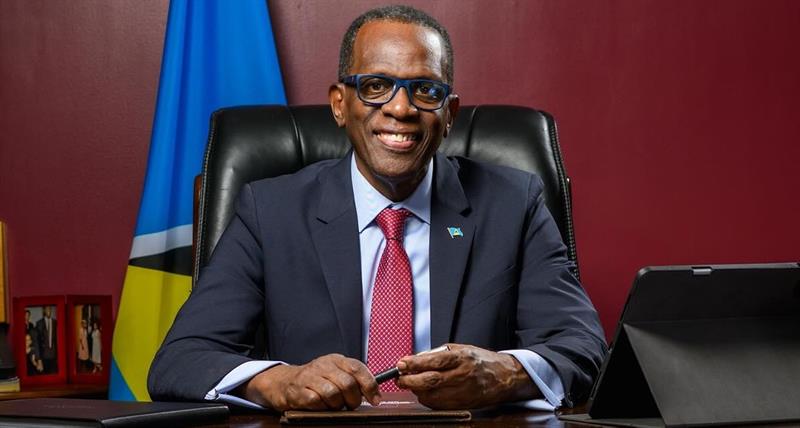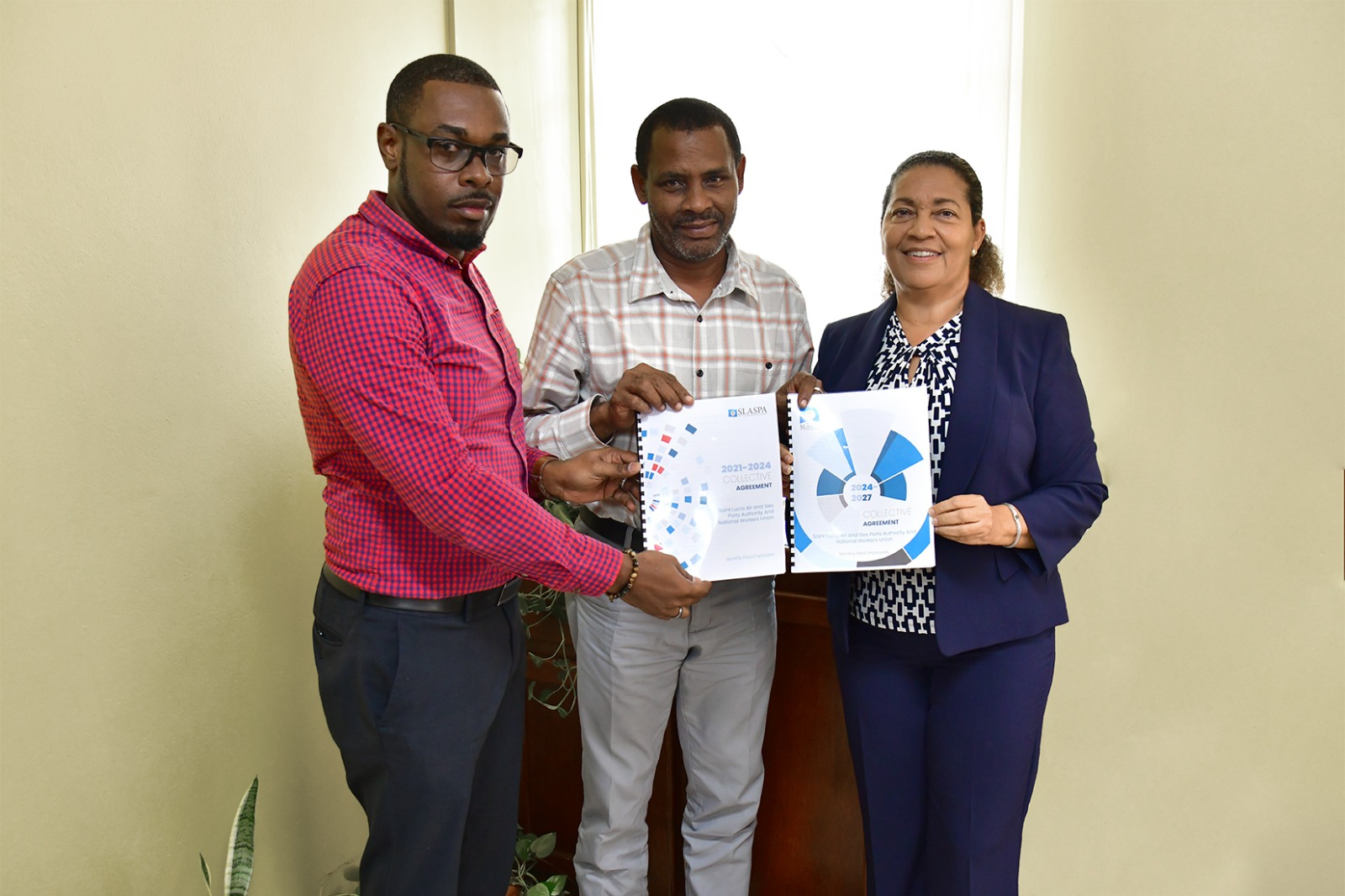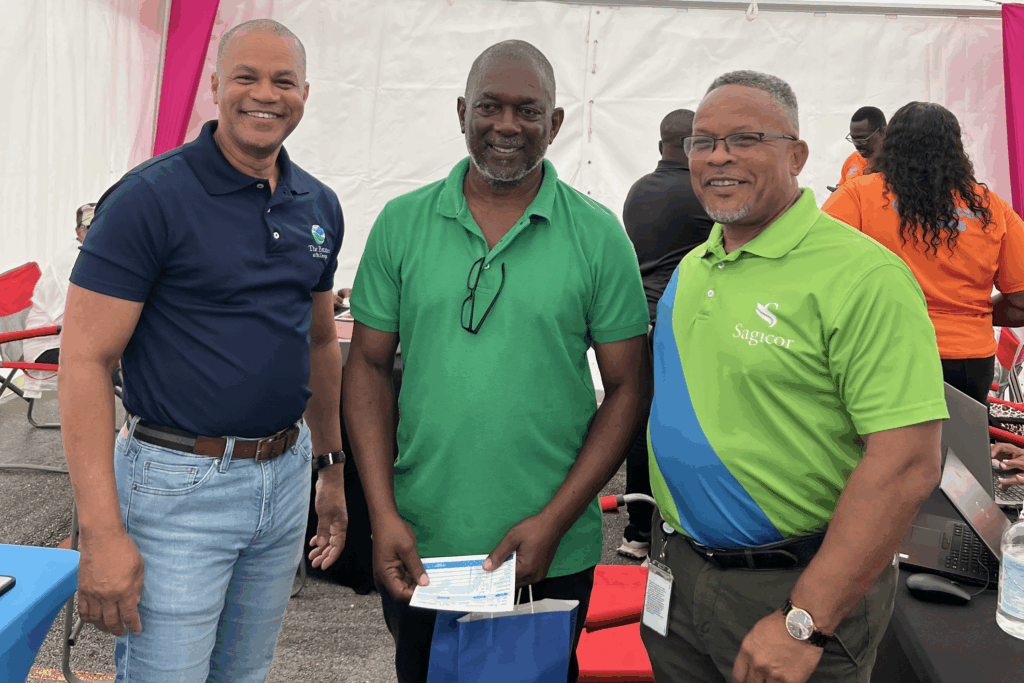The West Indies clinched a dramatic seven-run victory over New Zealand in the first match of their five-match T20I series at Eden Park on Wednesday. Defending a modest total of 164, the Caribbean side held their nerve in a tense finish to secure the win, marking the lowest-ever defended total at the venue. Captain Shai Hope led the charge with a crucial 53 off 39 balls, while Roston Chase delivered a stellar all-round performance, contributing with both bat and ball. New Zealand’s Mitchell Santner nearly turned the game around with a blistering unbeaten 55, but the West Indies held firm in the final over to seal the victory. The match showcased a mix of resilience and skill, with Matthew Forde and Jayden Seales making significant contributions with the ball. West Indies bowling coach Ravi Rampaul praised the team’s energy and execution, highlighting their ability to adapt quickly to the conditions.
博客
-

Saint Lucia, Taiwan finalise US$20 M housing loan agreement
The Government of Saint Lucia has successfully negotiated a US$20 million loan from the Export-Import Bank of the Republic of China (Taiwan) to bolster affordable housing and infrastructure projects. This financial agreement, facilitated through the Saint Lucia Development Bank (SLDB), aims to provide critical support to low- and middle-income families across the nation. Prime Minister Philip J Pierre announced the finalized deal during a pre-cabinet press briefing on November 3, emphasizing that all terms and conditions of the loan have been agreed upon. ‘We’ve completed that arrangement,’ Pierre stated, addressing concerns about the interest rate spread. ‘Very soon, prospective homeowners in Saint Lucia will have access to US$20 million through on-lending from the SLDB.’ The initiative is expected to benefit public sector workers, with the government already implementing measures such as waiving stamp duty on mortgages up to $400,000 and removing VAT on building materials to encourage housing development. However, the government has yet to provide a specific timeline for when the funds will be accessible to borrowers.
-

SLASPA workers secure 14% pay hike across two new deals
Employees of the Saint Lucia Air and Sea Ports Authority (SLASPA) are set to receive a significant 14% cumulative wage increase over six years, following the successful signing of two consecutive collective agreements with the National Workers’ Union (NWU). The agreements, spanning April 2021 to March 2024 and April 2024 to March 2027, each provide a structured 7% pay rise over their respective three-year periods. The phased increases are as follows: 2.0% from April 2021, 2.5% from April 2022, and 2.5% from April 2023 under the first agreement; and 2.0% from April 2024, 2.5% from April 2025, and 2.5% from April 2026 under the second. The signing ceremony, held on October 16, 2025, at the Labour Commissioner’s office, was hailed as a ‘historic achievement’ by SLASPA General Manager Daren Cenac, who commended the professionalism and cooperation of both negotiation teams. The agreements underscore SLASPA’s dedication to employee welfare, offering enhanced training, career development, workplace safety, and healthcare support. Grace Parkinson, SLASPA’s Chief Strategy and Business Development Officer, emphasized the workforce’s central role in the organization’s success, while NWU Secretary General Johann Harewood praised the collaborative spirit of the negotiations. Both parties also acknowledged the support of Labour Commissioner Joseph Joseph. The agreements are expected to boost employee morale and align with SLASPA’s strategic objectives in advancing Saint Lucia’s maritime and aviation sectors.
-

4 sets of responses to Trump’s request
In a recent development, former U.S. President Donald Trump’s proposal to deploy military assets in Grenada has sparked a heated debate, revealing four distinct perspectives within the region. These ‘camps’ reflect varying degrees of support, skepticism, and outright opposition to the initiative, each rooted in different moral, strategic, and practical considerations. Ian Baptiste, a keen observer of the situation, has categorized these responses to provide a clearer understanding of the ongoing discourse. The first camp, labeled ‘Absolutely Yes,’ comprises individuals who fully endorse Trump’s narrative that Venezuela is a narco-state necessitating military intervention. Trinidad and Tobago’s Prime Minister Kamla Persad-Bissessar is a prominent advocate of this stance. However, critics argue that this position lacks credibility, as there is no concrete evidence to support the claim that Venezuela is a narco-state, nor has it been demonstrated that non-violent alternatives have been exhausted. The second camp, ‘We Don’t Have a Choice,’ reflects a pragmatic approach. Members of this group believe that Grenada, given the overwhelming power of the U.S., has no viable option but to comply. They suggest leveraging the situation to secure economic benefits, such as reduced tariffs or improved visa access. However, this stance is criticized for sidestepping moral concerns, including the betrayal of Venezuela and potential regional security risks. The third camp, ‘We Don’t Have the Infrastructure,’ takes a more nuanced position. While acknowledging the ulterior motives behind Trump’s request, such as control over Venezuela’s resources, they argue that outright refusal is unwise. Instead, they propose citing a lack of technical capability as a diplomatic way to decline. Critics, however, warn that this approach could backfire, as the U.S. might easily provide the necessary infrastructure. The fourth camp, ‘Absolutely No,’ represents a moral stand. Members of this group, including Baptiste himself, view the issue as a matter of principle rather than practicality. They argue that acquiescing to Trump’s request would betray fundamental values such as sovereignty, peacemaking, and loyalty to allies. Despite potential economic repercussions, they advocate for standing firm on these principles. This multifaceted debate underscores the complex interplay of power, morality, and strategy in international relations, as Grenada navigates a challenging geopolitical landscape.






